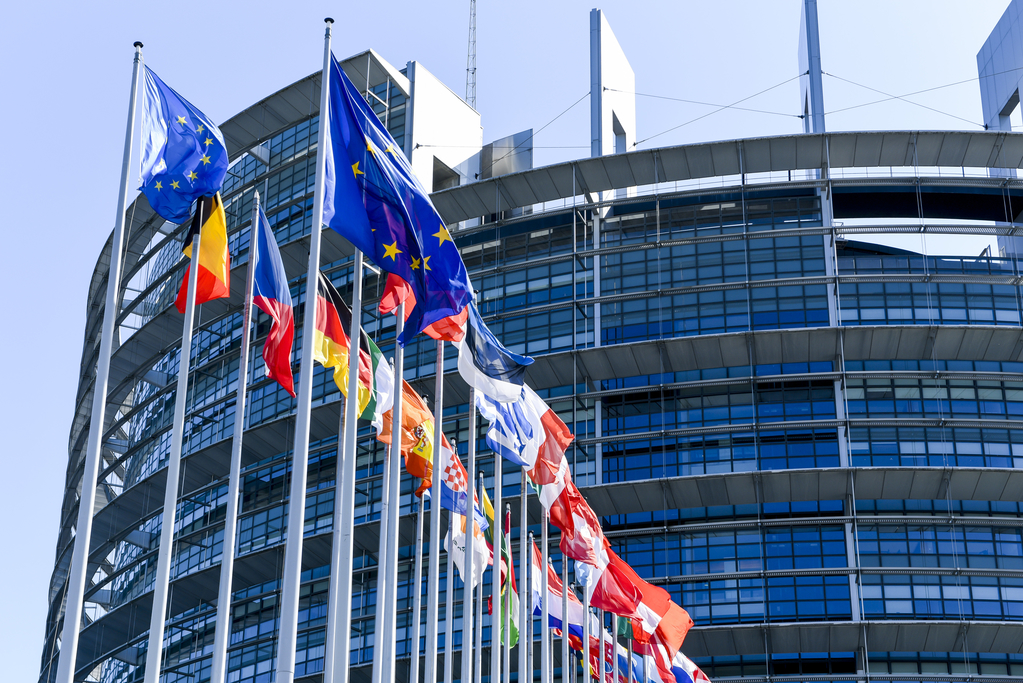The latest Standard Eurobarometer released last week shows that Europeans want to see the EU stronger and more independent, especially in the face of the current global challenges, but there are significant differences by member state.
The Standard Eurobarometer 101 (Spring 2024) was conducted between 3 and 28 April 2024 across the 27 Member States. 26,399 EU citizens were interviewed face-to-face.
On the positive side, from an EU perspective, some trends have been relatively stable for years and show that a majority of citizens across all EU member states are in favour of a common defence and security policy (EU average 77%) and agree (71%) that the EU needs to reinforce its capacity to produce military equipment. A majority (69%) are also for a common EU foreign policy.
As regards migration policy, the public opinion is more divided. While a majority (average 65 - 67 %) supports a common migration and asylum policy, the support falls below 50 % in some countries (Austria, Czech Republic, Estonia, Latvia, Hungary and Slovakia).
Not surprisingly in these difficult times, with a war continuing for the third year on the European continent, more than two thirds of citizens agree that the EU is a place of stability in a troubled world (67%). A majority (69 %) thinks also that the EU has sufficient power and tools to defend the economic interests of Europe against competition in the global economy.
In the ranking list of most important policy areas, security and defense (34%) is the priority area for the EU action in the medium term, followed closely by climate and the environment (30%). Health (26%) comes third, economy and migration – fourth (both 25%).
In foreign affairs, the Eurobarometer focused on Russia’s war of aggression against Ukraine. An overwhelming majority (87%) agree with providing humanitarian support to the people affected by the war, and 83% agree with welcoming into the EU people fleeing the war.
72% of EU citizens also support economic sanctions on the Russian government, companies, and individuals and 70% agree with providing financial support to Ukraine. Six in ten approve of the EU granting candidate status to Ukraine and of the EU financing the purchase and supply of military equipment to Ukraine.
In his key note speech on Wednesday at the Schuman Forum for Security and Defence, EU’s foreign policy chief, High Representative Josep Borrell, described the war in Ukraine as the most important existential threat, and the war in Gaza as the biggest ethical question for the EU. “A Russian victory in Ukraine would put the EU in enormous danger,” he said.
He did also refer to the latest Eurobarometer and remarked that a majority of European citizens support boosting EU’s defense industry. That said, the EU has problems in translating the support for Ukraine into unanimous decisions for delivering financial and military assistance to Ukraine.
In his press remarks after the foreign affairs council meeting earlier this week, Borrell could not hide his frustration that one EU member state, Hungary, is using its veto to delay urgent decisions on adopting the necessary legal acts to finance the military equipment to Ukraine. The agreement on the negotiating framework for the start of accession talks with Ukraine has also been delayed.
According to the Eurobarometer, 60% supports the purchase and supply of military equipment to Ukraine. The figure falls under 50% in some countries (Bulgaria, Cyprus, Greece, Hungary, Italy, Slovakia and Slovenia). In Hungary, the public opinion is relatively supportive (45 %).
The Eurobarometer squeezes European citizens on their perceptions and attitudes on a range of issues. 57 % of the respondents are satisfied with the way democracy works in the EU, a figure only one percent below their satisfaction with democracy in their country (58%). The figures show an increasing trend during the last 10 years.
As in previous opinion polls, the trust in public institutions vary greatly. Most people trust the police and army in their home countries (above 70 %) while the trust in political parties is only 22 %. The trust in media is still relatively high (EU average 40 %).
Trust in the EU is relatively high (49 %), much higher than in national governments, with a majority of the respondents associating the EU with words such as democratic and united. On the negative side, respondents also associate the EU as being remote (54%) and bureaucratic (74%). A majority (62%) thinks that their country faces the future better inside the EU, with significant minorities in some countries who think otherwise.
M. Apelblat
The Brussels Times

